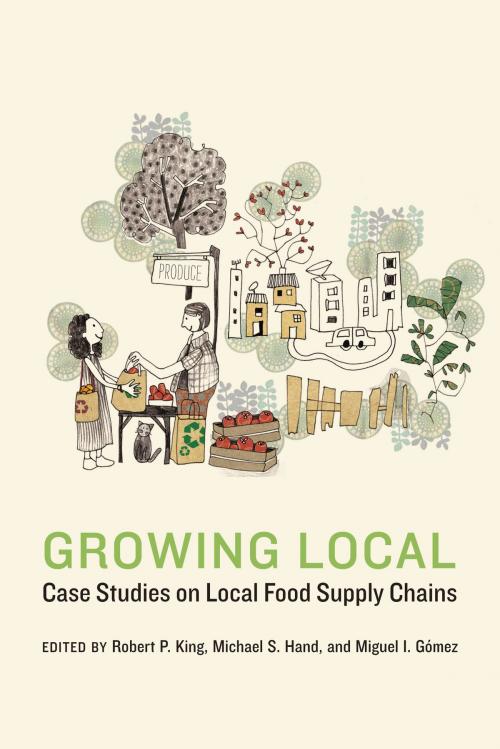Growing Local
Case Studies on Local Food Supply Chains
Nonfiction, Science & Nature, Technology, Agriculture & Animal Husbandry, Business & Finance, Industries & Professions, Industries, Social & Cultural Studies, Social Science| Author: | ISBN: | 9780803258167 | |
| Publisher: | UNP - Nebraska | Publication: | February 1, 2015 |
| Imprint: | University of Nebraska Press | Language: | English |
| Author: | |
| ISBN: | 9780803258167 |
| Publisher: | UNP - Nebraska |
| Publication: | February 1, 2015 |
| Imprint: | University of Nebraska Press |
| Language: | English |
In an increasingly commercialized world, the demand for better quality, healthier food has given rise to one of the fastest growing segments of the U.S. food system: locally grown food. Many believe that “relocalization” of the food system will provide a range of public benefits, including lower carbon emissions, increased local economic activity, and closer connections between consumers, farmers, and communities. The structure of local food supply chains, however, may not always be capable of generating these perceived benefits.
Growing Local reports the findings from a coordinated series of case studies designed to develop a deeper, more nuanced understanding of how local food products reach consumers and how local food supply chains compare with mainstream supermarket supply chains. To better understand how local food reaches the point of sale, Growing Local uses case study methods to rigorously compare local and mainstream supply chains for five products in five metropolitan areas along multiple social, economic, and environmental dimensions, highlighting areas of growth and potential barriers. Growing Local provides a foundation for a better understanding of the characteristics of local food production and emphasizes the realities of operating local food supply chains.
In an increasingly commercialized world, the demand for better quality, healthier food has given rise to one of the fastest growing segments of the U.S. food system: locally grown food. Many believe that “relocalization” of the food system will provide a range of public benefits, including lower carbon emissions, increased local economic activity, and closer connections between consumers, farmers, and communities. The structure of local food supply chains, however, may not always be capable of generating these perceived benefits.
Growing Local reports the findings from a coordinated series of case studies designed to develop a deeper, more nuanced understanding of how local food products reach consumers and how local food supply chains compare with mainstream supermarket supply chains. To better understand how local food reaches the point of sale, Growing Local uses case study methods to rigorously compare local and mainstream supply chains for five products in five metropolitan areas along multiple social, economic, and environmental dimensions, highlighting areas of growth and potential barriers. Growing Local provides a foundation for a better understanding of the characteristics of local food production and emphasizes the realities of operating local food supply chains.















